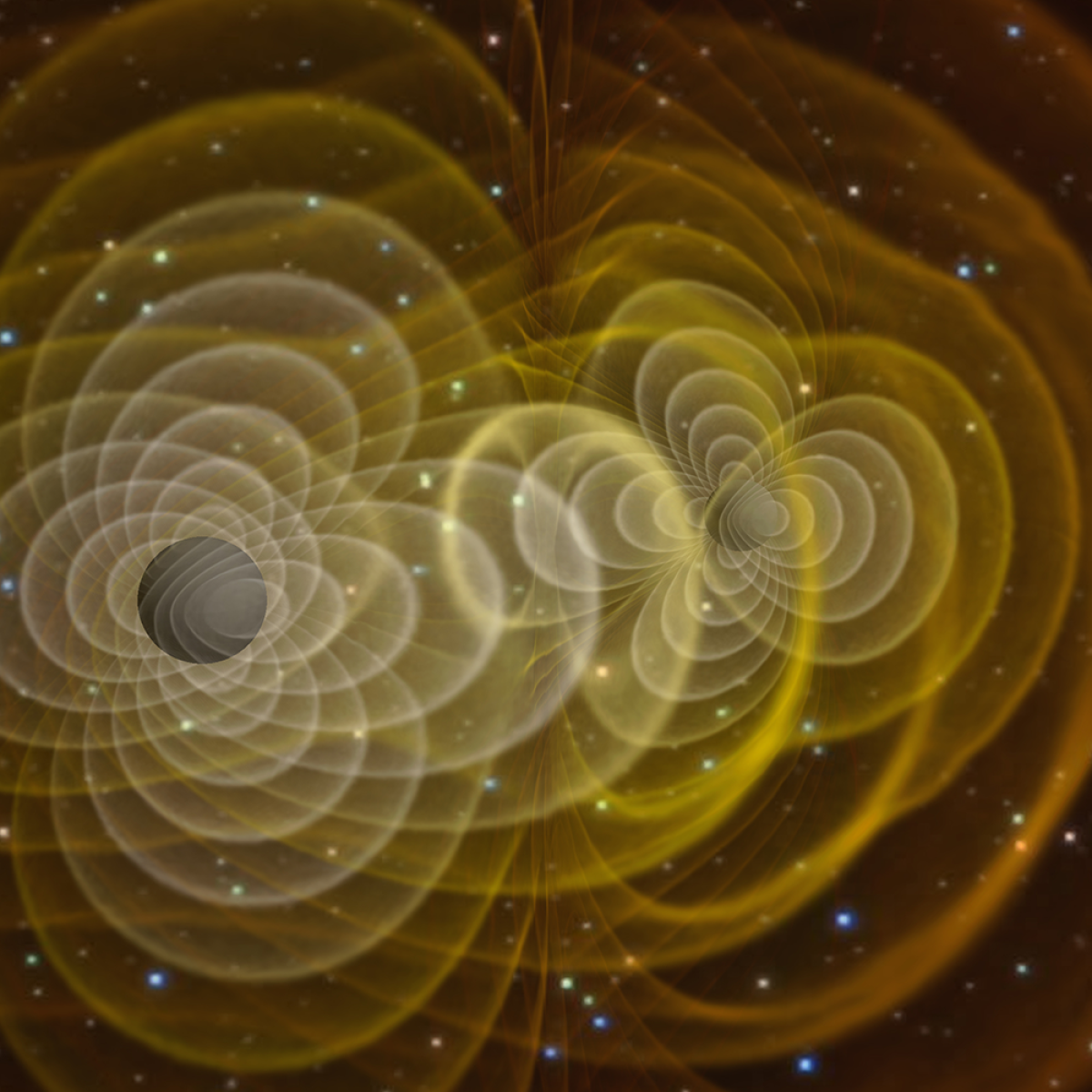Take a deep breath, put on your headphones and watch the video above. You're about to hear something truly astronomical: the sound of two black holes smashing together.
Somewhere in the universe, these behemoths collide at incredible speed every few minutes, sending gravitational ripples through space. By converting background wave data into sound waves, researchers writing in Physical Review X think they can single out individual events from the static.
Testing their theory with simulated data, they have produced an astonishing sound. When black holes collide they don't bang—they pop.
In 2016, astronomers reported the first ever detection of gravitational waves. The Laser Interferometer Gravitational-Wave Observatory (LIGO) picked up the ripples from colliding black holes. Since then, researchers have picked up more waves from black hole mergers and even colliding neutron stars.
Related: LIGO gravitational wave scientists win Nobel Prize for physics 2017
Most individual wave events are too faint by the time they reach Earth for astronomers to make them out from background gravitational-wave noise. Of more than 100,000 gravitational events a year, only a handful have been singled out from background wave data.

Researchers think sound could make a better tool to scour space for the elusive ripples. By pumping background data through a computer, they can produce sound waves. The scientists combed through masses of simulated black hole data until they found the faint but unambiguous sound of black hole mergers.
Related: LIGO announcement: Colliding neutron stars discovered for first time, sheds light on origin of gold
"Measuring the gravitational-wave background will allow us to study populations of black holes at vast distances. Someday, the technique may enable us to see gravitational waves from the Big Bang, hidden behind gravitational waves from black holes and neutron stars," explained Eric Thrane, study author and a researcher at Monash University in Melbourne, Australia, in a statement.
The team plans on using a new multimillion-dollar supercomputer to churn through real data. The researchers think their new method could be 1,000 times more sensitive than current techniques.
Uncommon Knowledge
Newsweek is committed to challenging conventional wisdom and finding connections in the search for common ground.
Newsweek is committed to challenging conventional wisdom and finding connections in the search for common ground.
About the writer
Katherine Hignett is a reporter based in London. She currently covers current affairs, health and science. Prior to joining Newsweek ... Read more
To read how Newsweek uses AI as a newsroom tool, Click here.








